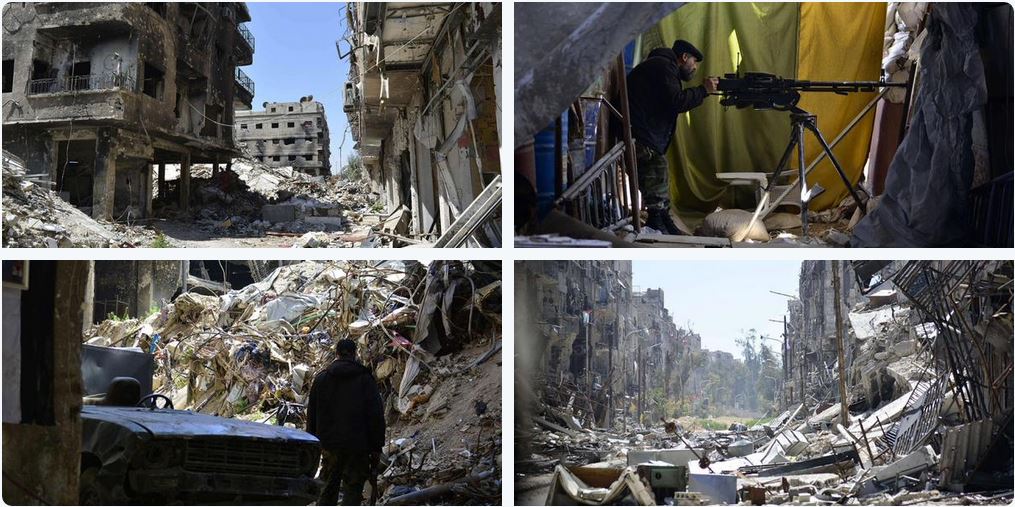U.S. and Turkey on a Collision Course in Syria
David Phillips
2 November 2015
Turkey’s President Recep Tayyip Erdogan threatens “all necessary measures” to prevent Syrian Kurds from advancing west of the Euphrates River. The People’s Protection Units (YPG) of the Democratic Union Party (PYD) is America’s principal ally fighting ISIS in Syria. Attacking the YPG puts Turkey and the US on a collision course.
The US and the PYD have been steadily deepening their cooperation, beginning with the battle for Kobani in October 2014. US war planes bombed ISIS and dropped weapons to besieged Kurdish fighters defending the city. The YPG was joined by Kurdish fighters from across the region, including the Kurdistan Worker’s Party (PKK). About 40 percent of Kobani’s defenders were women.
The YPG is a highly motivated and effective force fighting ISIS in Syria. They function as the multinational coalition’s boots on-the-ground. Last year, the US Special Envoy for Syria and PYD Co-Chair Salih Moslem had a series of meetings in Paris. Tactical discussions about battlefield coordination are ongoing.
In June, the US supported the YPG’s efforts to seize Tal Abyad, a strategic town on the Turkish border with Syria. Air power proved decisive in driving ISIS fighters from the town. Tal Abyad municipality – which includes Kurds, Arabs, Turkmen, Armenians, and others – recently chose to join Rojava. They are drawn to the YPG’s administration of grass-roots democracy, women’s empowerment, and environmental sustainability.
Now, the YPG is pushing west from Jazeera towards Jarabulus. The US recently provided 50 tons of ammunition to the YPG and affiliated Arab fighters, readying for the battle to liberate the ISIS stronghold of Raqqa.
Syrian Kurds are consolidating their territorial gains with the goal of establishing a security buffer along the Turkish-Syrian border. Contiguous territory controlled by the YPG serves a strategic purpose. It prevents jihadis from transiting from Turkey to Syria. It also provides a sanctuary for Syrians displaced by violent conflict.
Rojava’s emergence is anathema to Erdogan, who abhors the notion of an autonomous Kurdish region along Turkey’s border. To Erdogan, ISIS and the PKK “are the same.”
The PKK fought for decades to gain greater political and cultural rights in Turkey. The US, EU and Turkey have labeled it a foreign terrorist organization (FTO). However, the US Government does not consider the PYD an FTO. US support for the YPG is expanding, despite Turkey’s objections. The Pentagon announced last week the deployment of US Special Operations advisers, working with resistance forces in northern Syria.
Turkey strongly opposes US support for the YPG. Turkish war-planes recently strafed YPG fighters on at least two occasions. Erdogan warns Washington, “We don’t need anyone’s permission.”
Targeting the YPG opens a dangerous new front in the Syrian conflict. It also presents a conundrum to the United States.
It puts the US in a position of choosing between Turkey and the YPG. “Degrading and destroying” ISIS trumps concerns about tension with Turkey.
Moreover, Erdogan is out of favor in Washington. US policy-makers are upset by Erdogan’s authoritarianism and anti-democratic governance, especially his crackdown on press freedom. The Pentagon is still smarting from Turkey’s collusion with jihadi groups and half-hearted participation in the multinational coalition fighting ISIS.
The United States accept the AKP’s electoral victory in parliamentary elections on November 1. However, it cannot condone policies that undermine US counter-terrorism goals.
When Obama meets Erdogan in mid-November at the G-20, he should reaffirm America’s commitment to working with the YPG. He should also tell Turkey that an attack against the YPG – America’s ally — will be considered as an attack against the United States. The US and Turkish militaries need a protocol for de-conflicting in the event of a confrontation in Syrian air space.
Mr. Phillips is Director of the Program on Peace-building and Rights at Columbia University’s Institute for the Study of Human Rights. He is recent book is The Kurdish Spring: A New Map for the Middle East.
PS: Original article was published at:
http://www.huffingtonpost.com/david-l-phillips/us-and-turkey-on-a-collis_b_8452606.html


